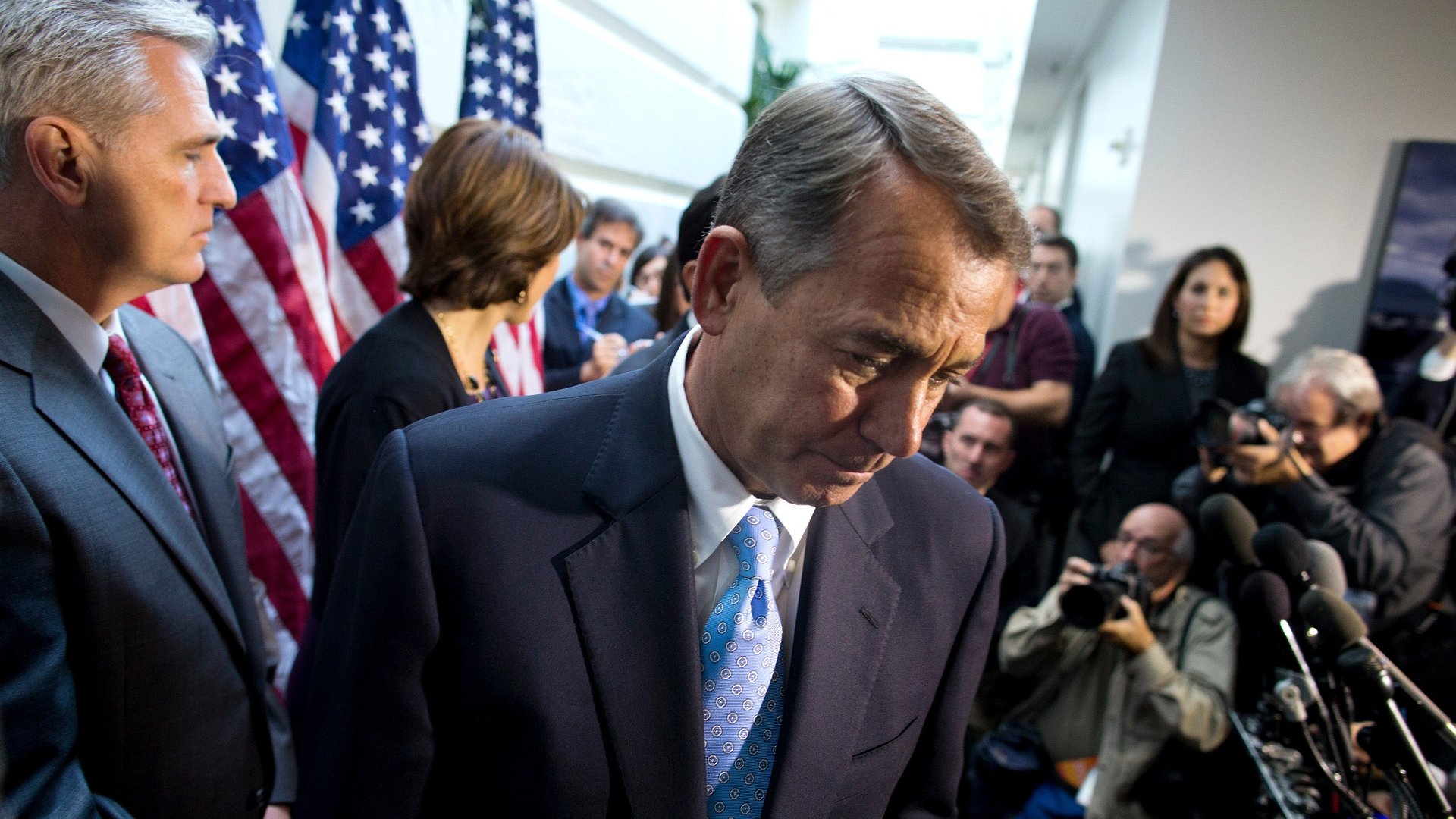The end of the US debt ceiling crisis, not with a bang but with a whimper
Update (12:24pm): It is indeed all over but the voting. Senate majority leader Harry Reid has just announced that a deal has been reached and Republican senator Ted Cruz, who filibustered a previous spending bill, has said he will vote against but won’t delay this one.


Update (12:24pm): It is indeed all over but the voting. Senate majority leader Harry Reid has just announced that a deal has been reached and Republican senator Ted Cruz, who filibustered a previous spending bill, has said he will vote against but won’t delay this one.
Original (10.17am):
Is it all over but the voting in Washington?
That’s how it appears after Republicans in the House were unable to pass a bill to open the government and lift the debt ceiling on their own terms late last night. Absent a counter-offer from the lower chamber, the Senate is set to re-open government until January and lift the debt ceiling until February. The only strings attached are more stringent verification of income for Americans who get subsidized health insurance under the health-care law that came into effect earlier this month, and the elimination of a tax on insurers that unions opposed.
Byron York, a conservative columnist in Washington, captured the dynamic, which we also saw during 2012’s battle over the fiscal cliff: Without a unified bill from the House, Republicans were unable to create any leverage over Senate Democrats or president Barack Obama. That finally finished their plans to cripple the new health-care law and force through their own budget priorities by shutting down the government and threatening a debt default.
While many Washington observers expected this outcome given the balance of power in government, fears in the financial markets and the turn of public opinion against the Republicans, it was not clear until today when Republican leaders in the House would allow such a bill to go forward, and if they would do so in time. And the last two weeks have cost the US economy—and its taxpayers—unnecessary billions.
The Senate could pass a bill today, but delaying tactics from Republicans senators like Ted Cruz could hold it until Saturday, according to Congressional sources, before the House votes. Alternatively, House speaker John Boehner may allow the bill to pass the House first with votes from the chamber’s Democrat minority, which would speed the process.
Even if borrowing authority is not returned to the Treasury by tomorrow (Oct. 17), when the US will only have $30 billion on hand to pay its bills, markets are expected to remain calm as long as the plan appears certain to pass and be signed by Obama before a November 1 interest payment is due.
But this clash is still not over yet. The two parties may still be unable to agree on a spending path for the government by January, which could mean another government shutdown. The same divides between conservatives, who want to settle for little less than their entire policy agenda, and pragmatists in the Republican caucus, which led to the current two-week shutdown, will still be present.
And, while the White House’s refusal to negotiate over lifting the debt ceiling sets an important precedent, the final compromise doesn’t eliminate the debt ceiling, nor give the president a statutory path to lift it without Congressional approval. That could set the US up for another scary default face-off in the future.